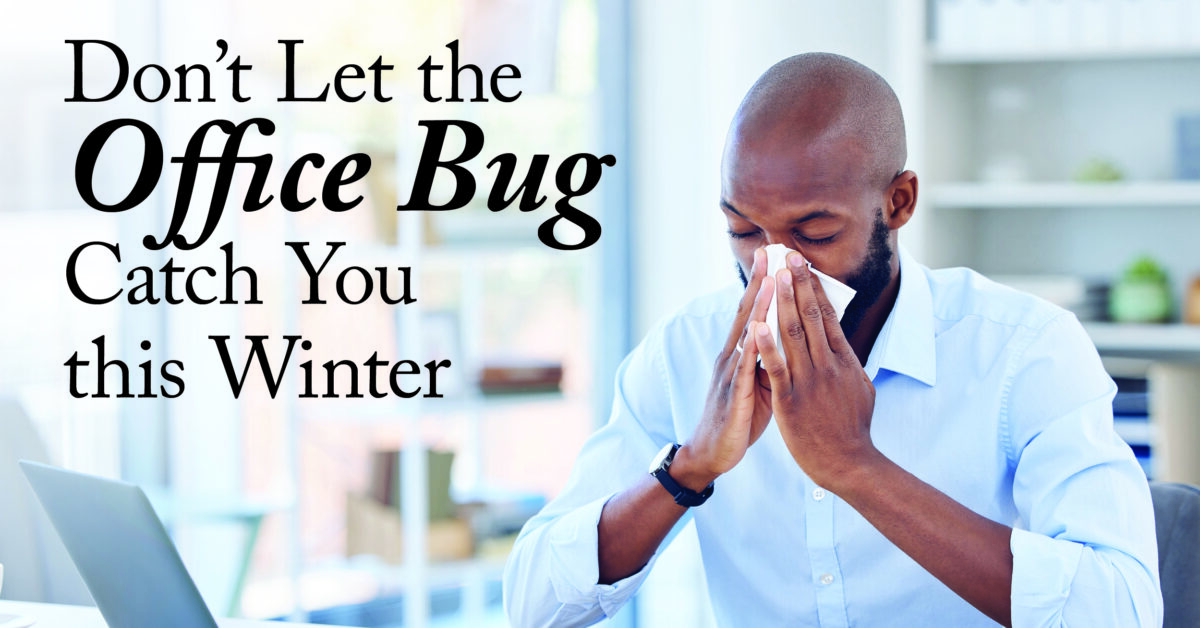
Top 6 Tips to Plan Your Next Trip
January 2025
Sinfully Delicious: Lake Charles’ Top Restaurant Fare
February 2025by Kristy Como Armand
Computer viruses aren’t the only type of virus you have to worry about in the workplace. Although the Centers for Disease Control and Prevention (CDC) doesn’t keep statistics on how common it is for co-workers to spread viruses within the office setting, numerous studies have found that office spaces provide an ideal environment for cold, flu, COVID and other viral germs to live and flourish.
Office phones, for example, have been found to have more than 25,000 germs per square inch, and each desk, computer keyboard, and mouse aren’t far behind. Phones, including cell phones, get coated with germs from the individual’s mouth and hands. According to a recent study at the University of Arizona, the average desk harbors over 10 million germs – 400 times more than the average toilet seat!
“The tight proximity of office workers also contributes to the rapid spread of illness,” says Wade Gillard, NP, with Imperial Health Urgent Care. “We may not be back to the pre-pandemic level of in-person meetings, but handshakes, shared equipment, and communal spaces like break rooms and meeting areas are prime spots for germs to transfer. When you stop to think of how often you shake someone’s hand, hand over a file, share a coffee pot, or put your hand on the same door handle, it’s easy to see how easily and quickly germs can spread around any workplace.”
He explains that although respiratory viruses are present throughout the year, the number rises as the weather cools. “Colder, dryer air drains the normal amount of mucus we carry in our nasal passages, making it easier for viruses to attach to the tissues in your nose. People also spend more time indoors during the winter months, increasing the chances of contact with someone who is sick.”
If you’re a cautious type who tries to avoid sitting next to a sniffling, coughing coworker during a meeting, Gillard says you have the right idea. “Every time a person with a cold, flu or COVID exhales, respiratory viruses are spread into the air about three feet from the infected person.”
But Gillard says airborne contamination is not the only risk. Research conducted at the University of Virginia Health System found that people infected with rhinovirus, the cause of half of all colds, can contaminate common objects, such as doorknobs, light switches, elevator and ATM buttons, keyboards, and other surfaces, which can infect others. “And keep in mind, a person is usually contagious a full day before they start feeling symptoms, so there could be people at work who are feeling just fine who are inadvertently exposing co-workers to their virus.”
While it may sound like you should just resign yourself to getting whatever office bugs are being spread through your office this year, Gillard says taking a few simple steps can minimize your exposure. One study found that having each worker clean their desk, phone, and keyboard with a disinfecting wipe once a day reduced bacterial levels by 99 percent.
The most important advice is the simplest, according to Gillard: “Wash your hands thoroughly and frequently. Most organisms are more easily transmitted through hand contact than sneezes. If you come into contact with a virus, then rub your nose or your eyes, or touch your mouth, you’re probably going to ‘get’ whatever you were exposed to. Try to avoid touching your face frequently during the day, wash your hands often, and use antibacterial gel frequently.”
All the products advertised for boosting your immunity during cold and flu season probably won’t make you resistant to the office bug. “A strong immune system can help you, but the best way to boost your natural immunity is to give your body the resources it needs to resist illness, including a healthy diet, regular exercise, and plenty of sleep,” says Gillard. “Your immunity is basically a function of how healthy you are overall.”
If you do feel unwell, and experience symptoms like high fever, severe cough, shortness of breath, or chest pain, it’s important to seek medical attention promptly. “These could be signs of a more serious infection, including COVID or pneumonia,” says Gillard. “For milder symptoms like a minor cough or runny nose, rest and home care may be sufficient, but if symptoms persist or worsen, consider visiting an urgent care center for evaluation and treatment. That’s what we’re here for!”
Imperial Health Urgent Care Centers are located in Lake Charles and Moss Bluff, with extended and weekend hours for patient convenience. Learn more at imperialhealth.com.






